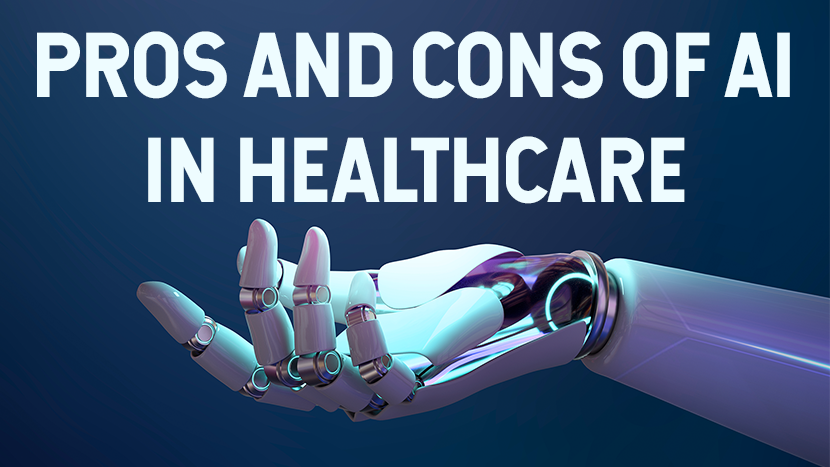Is AI Technology A Risk Or A Benefit For The Healthcare Industry?
When it comes to artificial intelligence, there are several ongoing arguments about whether it is a good or bad thing as far as the future is concerned.
But what these arguments often forget is that the AI revolution is happening now, which means there are a number of industries that it is already affecting.
One of these industries is the healthcare industry. Over the last few years, artificial intelligence has already been implemented into several sectors of the medical field, with many of us – although we might not realise it – already experiencing the benefits.
While the developments have been positive so far, the question still stands of how far AI could go. Will AI always be a benefit to the healthcare industry? Or does the future of AI have more possible negative consequences?
How Is AI Being Used In Healthcare?
A few years ago, a surgical retractor tool known as Galaxy II won the Queen’s Award for innovation, largely due to its ability to cut costs and alleviate the need for surgical assistants to retract an incision.
The success of tools like this highlight the need for cost efficiency in the healthcare system, as well as the ongoing mission to streamline the number of people needed in the surgery itself. Not only does this help patients receive more affordable care, but also quicker attention.
AI can similarly aid in these objectives. Although the technology is not common, AI-enabled remote surgery is also being used to lower the cost and heighten the accuracy of surgeries, with surgeons able to operate upon remote patients even if they are not in the same vicinity.
As well as this, robotic assistance in surgery – and across the healthcare system – are being enabled to improve high-risk and difficult procedures, making them far more accurate and efficient. This is also true in computing, as AI begins to automate computer tasks that were previously taking up a substantial part of a professional’s time.
There was, at one time, a fear of AI entirely taking over humans, but this doesn’t appear to be the case in the healthcare industry. If the last few years have told us anything, it’s that surgeons – and surgical innovations such as the medical retainers – are always going to be needed. AI is simply there to help the cause further and to assist in improving safety and efficiency across the board.
The Potential Risks Of AI
Despite the fact that the implications in the surgical and data field of healthcare are – so far – positive, is there not a possibility that things could change?
So far, the biggest risk when it comes to surgery is that AI is not always accurate. Although the most recognisable innovations, such as ChatGTP, seem enormously impressive, AI is still in its very early stages of development. That means, as of yet, we don’t know how accurate it can be. Could it eventually run on 100% accuracy? Because surely, if it can’t, any surgical procedure could technically go wrong?
As well as this, AI could pose a massive security risk. While it grows and develops, AI is still susceptible to data being collected and abused, and it might end up actually adding costs when it comes to data security and defending against AI-assisted cyber attacks.
There are a number of other risks too, not limited to things like the possibility of social biases, a lack of transparency and misalignments between human diagnostics and AI. But, as of right now, the use of AI in aiding the healthcare industry is clearly beneficial.
Because of this, it is even more important that people are aware of the risks and the right steps are taken to integrate AI safely and efficiently into new technology.

































































































